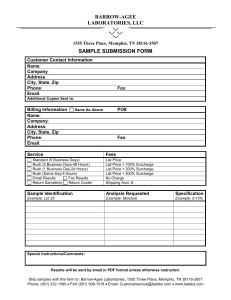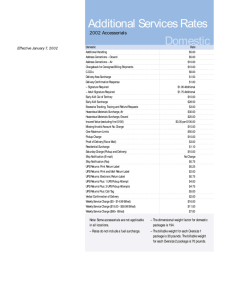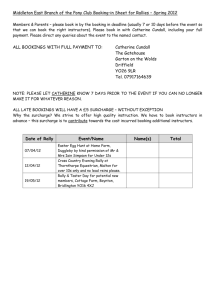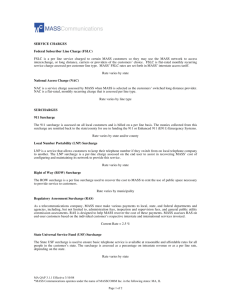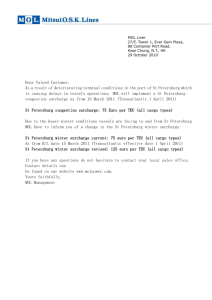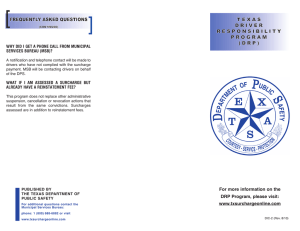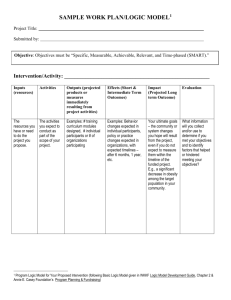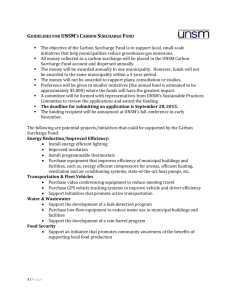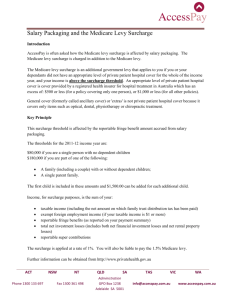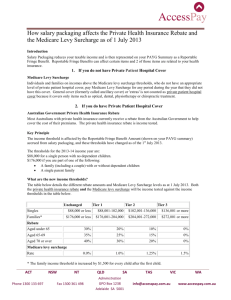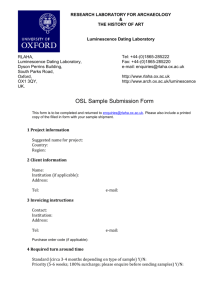HS 6200 Notes Nowicki Ch 7
advertisement
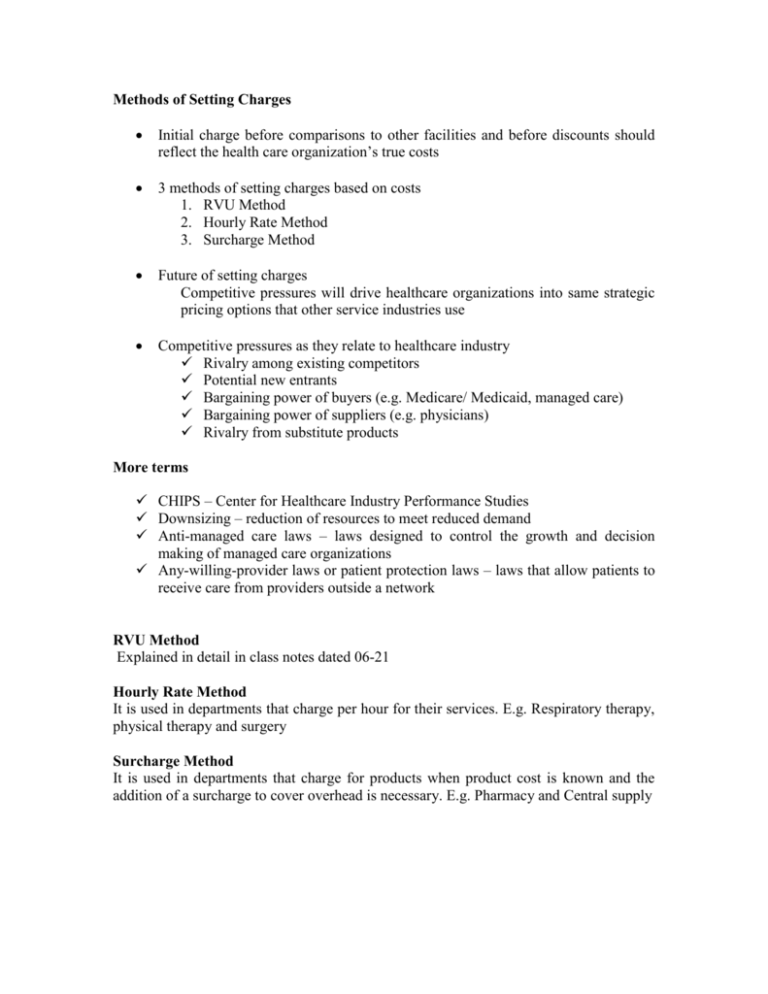
Methods of Setting Charges Initial charge before comparisons to other facilities and before discounts should reflect the health care organization’s true costs 3 methods of setting charges based on costs 1. RVU Method 2. Hourly Rate Method 3. Surcharge Method Future of setting charges Competitive pressures will drive healthcare organizations into same strategic pricing options that other service industries use Competitive pressures as they relate to healthcare industry Rivalry among existing competitors Potential new entrants Bargaining power of buyers (e.g. Medicare/ Medicaid, managed care) Bargaining power of suppliers (e.g. physicians) Rivalry from substitute products More terms CHIPS – Center for Healthcare Industry Performance Studies Downsizing – reduction of resources to meet reduced demand Anti-managed care laws – laws designed to control the growth and decision making of managed care organizations Any-willing-provider laws or patient protection laws – laws that allow patients to receive care from providers outside a network RVU Method Explained in detail in class notes dated 06-21 Hourly Rate Method It is used in departments that charge per hour for their services. E.g. Respiratory therapy, physical therapy and surgery Surcharge Method It is used in departments that charge for products when product cost is known and the addition of a surcharge to cover overhead is necessary. E.g. Pharmacy and Central supply Problem 1: Using the hourly rate method calculate the charge per modality necessary to recover total costs given that at ABC Physical Therapy Clinic: Total projected cost per year of physical therapy = $800,000 Total projected hours of use per year = 20,000 hours Modality = 15 minutes Solution: Charge per modality = (total projected cost) / (total projected modality (hour*4)) = 800,000 / 80,000 = $10 per modality Problem 2: Using the surcharge method of setting charges, calculate the charge necessary to recover total costs for 100,000 admission kits given that at ABC Women’s Hospital: Total projected costs of kits and administration = $150,000 Total projected cost of admission kits = $100,000 Solution: Step 1: Total cost – cost of kits = total surcharge in dollars $150,000 - $100,000 = $50,000 Step 2: Surcharge in dollars / cost of kits = surcharge as % $50,000 / $100,000 = 0.5 Step 3: (Surcharge as %) * cost per kit = surcharge per kit 0.5 * $1 = $0.5 Step 4: Surcharge per kit + cost per kit = Rate to break even $0.5 + $1 = $1.5
